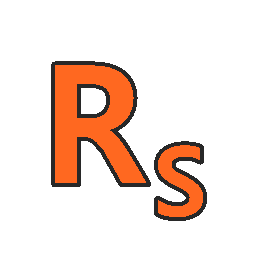
About Course
Fundamentals of database systems. Become a Microsoft Technology Associate and get recognized for demonstrating introductory knowledge of and skills with databases, including relational databases, such as Microsoft SQL Server.
In this self-paced course, I’ll be taking you from the basic understanding of database concepts to writing your own queries, selecting data, modifying data, and creating database structures. Along the way, I’ll explain the key concepts, demonstrate the syntax.
This course consists of presentations to cover the theoretical objectives of the exam and demonstrations to cover the practical skills required to pass the exam.
**This is a dedicated preparation course for the Microsoft Technology Associate: 98-364 Database Fundamentals Exam**
Who this Fundamentals of database systems course is for:
-Beginners seeking to pass the MTA 98-364 Database Fundamentals Exam
-Database developers seeking to pass the MTA 98-364 Database Fundamentals Exam
-Individuals seeking to learn the fundamentals of relational databases, database management -systems, database components, and querying databases
Course Content
Fundamentals of database systems
-
Big Data
00:00 -
Schedules: View Serializability
00:00 -
Schedules: Conflict Serializability
00:00 -
Schedules: Introduction
00:00 -
Recovery Systems: Checkpointing and Shadow Paging
00:00 -
Recovery Systems: Immediate Database Modification.
00:00 -
Recovery Systems: Deferred Database Modification
00:00 -
Database Transactions: States and Systems
00:00 -
Database Transactions: Properties and Failures
00:00 -
Query Optimization: Heuristics and Sizes
00:00 -
Query Optimization: Join Order
00:00 -
Schedules: Result Equivalence and Testing for Serializability
00:00 -
Schedules: Recoverability
00:00 -
NoSQL: Different NoSQL Systems
00:00 -
NoSQL: Columnar Families
00:00 -
NoSQL: Introduction and Properties
00:00 -
Concurrency Control: Deadlock Recovery and Update Operations
00:00 -
Concurrency Control: Deadlock Prevention and Deadlock Detection
00:00 -
Concurrency Control: Multiple Granularity for Locks
00:00 -
Concurrency Control: Validation-based Protocol
00:00 -
Concurrency Control: Timestamp Ordering Protocol
00:00 -
Concurrency Control: Two-phase Locking Protocol
00:00 -
Concurrency Control: Locks
00:00 -
Query Optimization: Complex Equivalence Rules
00:00 -
Query Optimization: Equivalent Expressions and Simple Equivalance Rules
00:00 -
SQL: Updates, Joins, Views and Triggers
00:00 -
SQL: Advanced Queries
00:00 -
SQL: Basic Queries
00:00 -
SQL: Introduction and Data Definition
00:00 -
Relational Algebra: Database Modifications
00:00 -
Relational Algebra Extended Relational Algebra
00:00 -
Relational Algebra Additional Operators
00:00 -
Relational Algebra Composition of Operators
00:00 -
Relational Algebra Basic Operators
00:00 -
Relational Data Model
24:51 -
Normalization Theory: Motivation
00:00 -
Normalization Theory: 1 NF and 2NF
00:00 -
Query Processing: Hash join and other Operations
00:00 -
Query Processing: Nested-Loop joins and Merge join
00:00 -
Query Processing: Sorting
00:00 -
Query Processing: Selection
00:00 -
Database Indexing: Tree-based Indexing
00:00 -
Database Indexing: Hashing
00:00 -
Physical Design
00:00 -
Normalization Theory: MVD
00:00 -
Normalization Theory: BCNF
00:00 -
Normalization Theory: 3NF
00:00 -
Introduction to Databases
12:05
Student Ratings & Reviews

